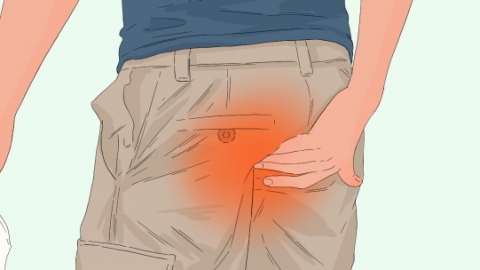What causes anal discharge after hemorrhoid surgery?
In general, anal discharge after hemorrhoid surgery may be caused by wound exudate, anal sphincter relaxation, wound infection, perianal eczema, or anal fistula formation. If discomfort occurs, it is recommended to seek timely medical evaluation and treatment at a正规 hospital. The specific causes are analyzed as follows:

1. Wound Exudate
During the healing process after surgery, the local tissue produces exudate, which mixes with mucosal secretions to form anal discharge. Change cotton underwear frequently, use breathable pads, clean the perianal area with warm water after bowel movements, keep the wound dry, and avoid friction or irritation.
2. Anal Sphincter Relaxation
Surgical stimulation or removal of tissue can lead to temporary relaxation of the anal sphincter, preventing complete closure of the anus and allowing intestinal secretions to leak out. Perform daily Kegel exercises—contract the anal muscles for 3 seconds before relaxing—for 10–15 minutes per session to promote recovery of sphincter function.
3. Wound Infection
Improper postoperative care may allow bacterial invasion of the wound, leading to infection. Inflammation increases discharge, often accompanied by odor, redness, swelling, and pain. Under medical guidance, antibiotics such as cefuroxime axetil tablets, levofloxacin hydrochloride tablets, or metronidazole tablets may be prescribed. Additionally, enhance wound debridement and dressing changes.
4. Perianal Eczema
Prolonged irritation from discharge can trigger an allergic reaction in the perianal skin, resulting in eczema, characterized by itching and increased weeping. Under medical supervision, topical treatments such as calamine lotion, desonide cream, or tacrolimus ointment may be used. Keep the perianal area dry and avoid scratching.
5. Anal Fistula Formation
If a surgical wound infection spreads and develops into a perianal abscess that ruptures, it may progress into an anal fistula, continuously discharging pus or mucus. Prompt medical attention is required, typically involving fistulectomy. For complex fistulas, seton placement may be performed. Postoperative dressing changes should follow medical instructions to prevent recurrence.
During recovery, maintain regular sleep patterns and avoid spicy foods. Attend follow-up appointments regularly and monitor changes in the characteristics of discharge. Seek immediate medical care if discharge suddenly increases, changes color abnormally, or is accompanied by fever—do not delay treatment.




